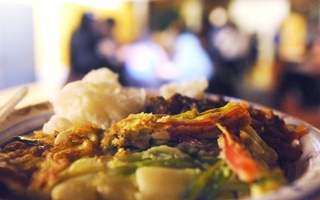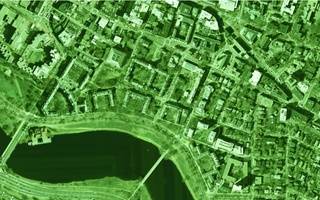Cheung, who is a graduate of a dual degree program between the Harvard Kennedy School and the MIT Sloan School of Management, described Cambridge’s town and gown divide as an unfortunate byproduct of university-driven economic development.
“Having Harvard and MIT, Cambridge’s challenge is almost, ‘How do we deal with too much of a good thing?’” Cheung said.
As Cheung described, Harvard and MIT have led to the growth of companies and job opportunities in Cambridge. But this economic growth has been followed by an influx of people to Cambridge, pressure on the housing market, and the displacement of long-time Cambridge residents.
Leslie also noted the link between Cantabrigians’ resentment of Harvard and their fear of further changes in the city landscape. “[Cantabrigians] say things like, ‘Let’s keep them from changing the character of the city,’” Leslie said.
TAKING CAMBRIDGE FOR GRANTED?
Asked to characterize Harvard’s relationship with city government in the last two years, candidates gave conflicting responses.
Citing Harvard and MIT’s new sustainability agreement with Cambridge, Kristen von Hoffman and Jefferson R. Smith both described the relationship as strong. Cheung, who served on the City Council’s University Relations Committee during his first term, said the relationship has “improved,” but Leslie called it “strained.”
“I don’t think there has ever been a relationship,” said Craig A. Kelley, a current city councillor who is seeking reelection.
Kelley said that the Council has failed to communicate with the University in a focused manner and that the University, meanwhile, has independently pursued its own plans in the city. He cited the renovations of Leverett and Dunster House as examples of how Harvard has pursued projects that affect the Cantabrigians’ daily lives with limited input from city stakeholders.
“So when Harvard does its houses down by Cowperthwaite Street...it has traffic impacts, parking impacts, noise impacts,” Kelley said. “When it decides it wants to do something on the overpass by the Science Center it is a big something...when you do something, you have impacts.”
Whether or not Harvard does right by the community was a point of contention amongst Council candidates.
“They’re great landlords if you speak to people who do business in Harvard Square,” said Leslie, adding that he believed Harvard maintains its rental properties well in hopes of sustaining tourism to the University.
Cheung, however, focused on the University’s recent decline in philanthropy on the local level. He discussed the closure of the Inn at Harvard and sale of a building on 2 Mt. Auburn St. that had previously been rented to a nonprofit dedicated to affordable housing.
“When Harvard put the hotel [on Mass Ave.] , they made it clear that it was eventually going to be swing housing space for some reconstruction, but that still doesn’t mean that the people there, working there for 10 years, aren’t negatively impacted,” Cheung said.
He explained that the property, Putnam Square Apartments, was a commitment by Harvard to provide housing to low-income senior citizens. “By selling that off to another organization Harvard is backing away from their prior commitment,” Cheung said.
Read more in News
At Town Hall Meeting, Professors Discuss Future edX ImprovementsRecommended Articles
-
BRIEF: City of Cambridge Divided Into Two Voting DistrictsLast week, Massachusetts Governor Deval L. Patrick ’78, a Democrat signed a state-wide redistricting bill that will divide the city of Cambridge into two voting districts.
-
 Piece of Mind? Piece of Cake
Piece of Mind? Piece of Cake -
As Healy Departs, Cambridge City Council Looks to Find ReplacementWith longtime City Manager Robert W. Healy’s contract due to expire in June 2013, the Cambridge City Council has begun the search for his replacement.
-
City Council Taps Rossi To Be City ManagerIn a move that upset some Cantabrigians and drew praise from others, the Cambridge City Council tapped Deputy City Manager Richard C. Rossi to replace longtime City Manager Robert W. Healy.
-
City Council Passes Resolution Backing HUCTWThe Cambridge City Council passed a resolution last Monday night declaring its support for the Harvard Union of Technical and Clerical Workers as the union continues its ongoing negotiations with the University.
-
 Imagining and Implementing a Greener Cambridge
Imagining and Implementing a Greener Cambridge













